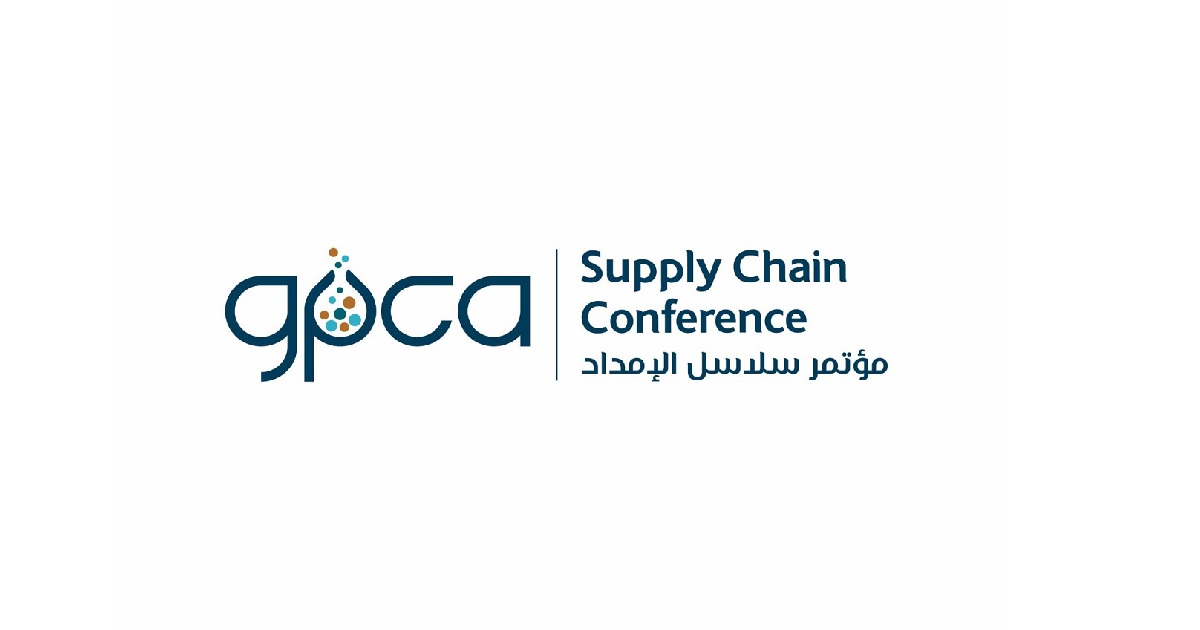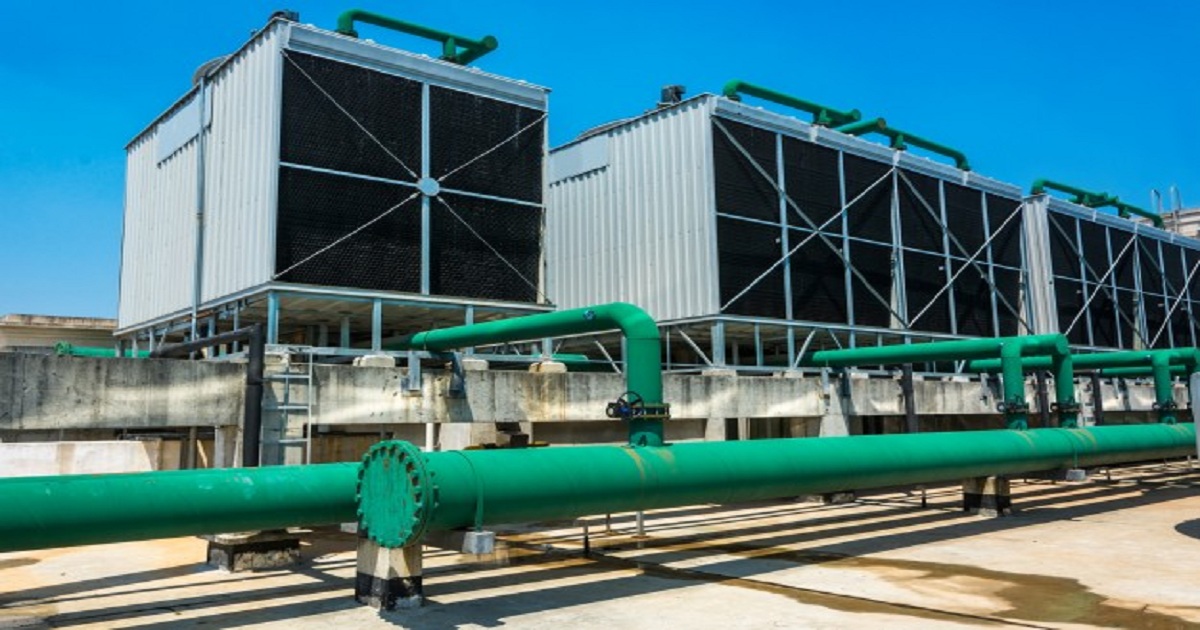
Chemical Technology
Gulf Petrochemicals & Chemicals Association | June 04, 2021
The virtual conference was held on 26-27 May, attracting over 1300 attendees from 450 companies in 62 countries
Dubai, United Arab Emirates, 31 May 2021 – The coronavirus (COVID-19) pandemic of the last 15 months has demonstrated the acute importance of collaboration to build more agile, resilient, and responsive supply chains, said industry leaders at the 12th Gulf Petrochemicals and Chemicals Association (GPCA) Supply Chain Conference held virtually on 26-27 May.
Senior executives from across the chemical and petrochemical value chain, logistics service providers and shipping operators urged industry leaders to capitalize on the lessons learned during the pandemic and act upon them in the future – from collaborating more closely with the regulators, their customers, and strategic partners, to driving better supply chain visibility, investing in digitalization, building their workforce capabilities, and focusing on supply chain sustainability.
In his keynote address, Hamad Alterkait, Chairman of the Kuwait based company, PIC, encouraged chemical leaders to engage in supply chain collaboration even with their competitors and keep their inventory in close customer proximity to improve their reliability and better serve their end markets. He told attendees at the virtual event: “Regional chemical producers must diversify their supply base even if it means incurring higher costs in order to cushion the impact from any future crisis. Companies must also explore out of the box supply chain solutions, using different scenarios, which may aid in addressing important challenges at a critical time.”
Echoing Alterkait’s remarks on the importance of collaboration were Hosam Al-Zamil, VP, Global Supply Chain, SABIC; Ahmed Abdulla Al-Salahi, CCO, Q-Chem; and Ahmed Al-Katheeri, SVP - Supply Chain Management, Borouge, in the conference’s inaugural panel on the future of chemical supply chains. The COVID-19 pandemic was a test to chemical supply chains’ resilience, as it demonstrated that the world is one global community, panelists said.
“The future will not be the moving of our products; it will be the moving of data which will help enable responsiveness and agility and drive customer centricity to stay competitive. However, we cannot achieve this by working in silos. The chemical industry is just one part of the supply chain and we must work together to build a more resilient future,” Al-Katheeri added.
A recent GPCA survey confirms the insights shared by speakers. It found that chemical supply chain and operations have been the single most impacted business function within downstream organizations in the GCC in the past 15 months as a result of the COVID-19 pandemic. In the path to recovery, chemical companies must focus on supply chain digitalization, sustainability, trade facilitation and regulatory engagement. Within these trends, carbon neutrality, Artificial Intelligence (AI) and Machine Learning (ML) will be the key segments to focus on and drive the highest impact on businesses’ supply chains today, the survey found.
Dr. Abdulwahab Al-Sadoun, Secretary General, GPCA, commented, “I was pleased to welcome the regional and global chemical industry to the virtual edition of the 12th GPCA Supply Chain Conference last week and gain first-hand insight into the challenges associated with the pandemic on their chemical supply chain and operations. The audience was left with a message of positivity on what’s to come next and provided with a range of practical tips on how to address the uncertainty and any new crisis in the future. I hope delegates enjoyed attending the event and thank all our sponsors and partners for making this edition possible.”
The 12th GPCA Supply Chain Conference was held under the theme ‘Powering a resilient, responsive and agile supply chain’, attracting over 1300 attendees from 450 companies in 62 countries.
To learn more, visit www.gpcasupplychain.com
About the Gulf Petrochemicals & Chemicals Association
The Gulf Petrochemicals and Chemicals Association (GPCA) was established in 2006 to represent the downstream hydrocarbon industry in the Arabian Gulf. Today, the association voices the common interests of more than 250 member companies from the chemical and allied industries, accounting for over 95 percent of chemical output in the GCC. The industry makes up the second largest manufacturing sector in the region, producing over USD 108 billion worth of products every year.
GPCA supports the petrochemical and chemical industry in the Arabian Gulf through advocacy, networking and thought leadership initiatives aimed at helping member companies to connect, share and advance knowledge, contribute to international dialogue, and become prime influencers in shaping the future of the global petrochemicals industry.
Committed to providing a regional platform for stakeholders from around the world, GPCA manages six working committees – Plastics, Supply Chain, Fertilizers, International Trade, Research and Innovation, and Responsible Care – and organizes six world-class events each year. The association also publishes an annual report, regular newsletters and various other industry reports.
For more information, visit www.gpca.org.ae.
Contact:
Slavka Atanasova
Gulf Petrochemicals and Chemicals Association
P. O. Box 123055,
Dubai,
United Arab Emirates
T: + 44 7561 525126
E: slavka@gpca.org.ae
or
Hector Aquino
hector@gpca.org.ae
Read More

Chemical Technology
Enowa | February 19, 2021
Enowa, LLC is pleased to announce the partnership with SAP in the second edition of 2021 Partner Stage to bring viewpoint to the SAP Chemical Community. Enowa is active in the Chemical Industry, notably driving numerous business and S/4HANA changes and utilizing measure mining devices to help their S/4HANA excursion. In the new interview with Rick Place, Partner at Enowa and SAP's Solution Specialist for the Chemical Industry Business Unit, Matthew Reymann, Rick answered how Enowa effectively drives changes and features the significance of the SAP accomplice environment for the achievement of the Chemical Industry.
Rick Place expresses the first concerns for the Chemical Industry is the requirement for speed in real data at real time, or near it. Further, Rick shares how coming from the beginning phases of monetary vulnerability and how that affects Mergers, Acquisitions and Divestitures – to largely extent driven by Enowa's Private Equity network. To achieve success, Enowa specialists are driving outcomes on these topics, a subset of our full competencies:
About Enowa
Enowa is a global, mid-sized SAP Gold Services partner established in nearly 20 years ago with a dedicated focus on business process and SAP consulting.
About SAP
A top cloud company with 200 million users worldwide, SAP helps businesses of all sizes and in all industries to operate profitably, adapt continuously, and achieve their purpose.
Read More

Chemical Management
Huntsman | January 20, 2021
Huntsman Corporation (NYSE: HUN) today announced it completed the acquisition of Gabriel Performance Products (Gabriel), a North American specialty chemical manufacturer of specialty additives and epoxy curing agents for the coatings, adhesives, sealants and composite end-markets, from Audax Private Equity.
Huntsman paid $250 million, subject to customary closing adjustments, in an all-cash transaction funded from available liquidity. Gabriel had 2019 revenues of approximately $106 million with three manufacturing facilities located in Ashtabula, Ohio, Harrison City, Pennsylvania and Rock Hill, South Carolina. Based on calendar year 2019, the purchase price represents an adjusted EBITDA multiple of approximately 11 times, or approximately 8 times pro forma for synergies.
Huntsman Corporation is a publicly traded global manufacturer and marketer of differentiated and specialty chemicals with 2019 revenues of approximately $7 billion. Our chemical products number in the thousands and are sold worldwide to manufacturers serving a broad and diverse range of consumer and industrial end markets. We operate more than 70 manufacturing, R&D and operations facilities in approximately 30 countries and employ approximately 9,000 associates within our four distinct business divisions.
Certain information in this release constitutes forward-looking statements within the meaning of Section 27A of the Securities Act of 1933 and Section 21E of the Securities Exchange Act of 1934. These statements are based on management's current beliefs and expectations. The forward-looking statements in this release are subject to uncertainty and changes in circumstances and involve risks and uncertainties that may affect the company's operations, markets, products, services, prices and other factors as discussed under the caption "Risk Factors" in the Huntsman companies' filings with the U.S. Securities and Exchange Commission. Significant risks and uncertainties may relate to, but are not limited to, volatile global economic conditions, cyclical and volatile product markets, disruptions in production at manufacturing facilities, reorganization or restructuring of Huntsman's operations, including any delay of, or other negative developments affecting the ability to implement cost reductions, timing of proposed transactions, and manufacturing optimization improvements in Huntsman businesses and realize anticipated cost savings, ability to achieve projected synergies, and other financial, economic, competitive, environmental, political, legal, regulatory and technological factors. The company assumes no obligation to provide revisions to any forward-looking statements should circumstances change, except as otherwise required by applicable laws.
Read More